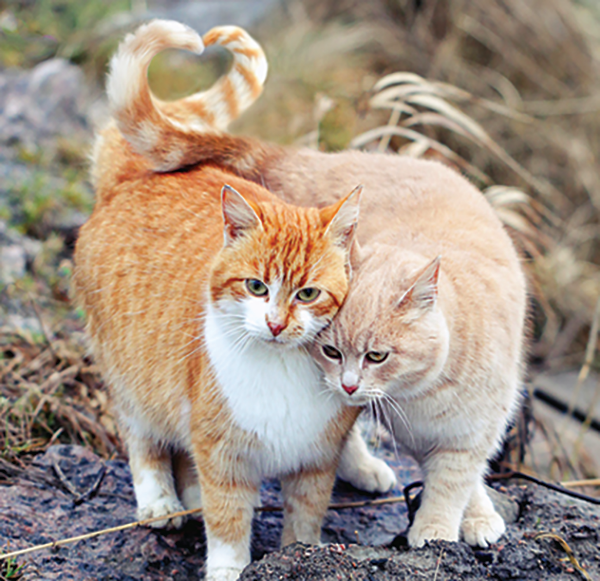
Learn to Read Your Cat’s Tail Catwatch Newsletter
The 5 Likely Reasons Your Cat Has a Limp in His Tail. 1. Trauma. "Trauma" is a broad umbrella term covering many things, but trauma to the tail is one of the most common explanations for your.
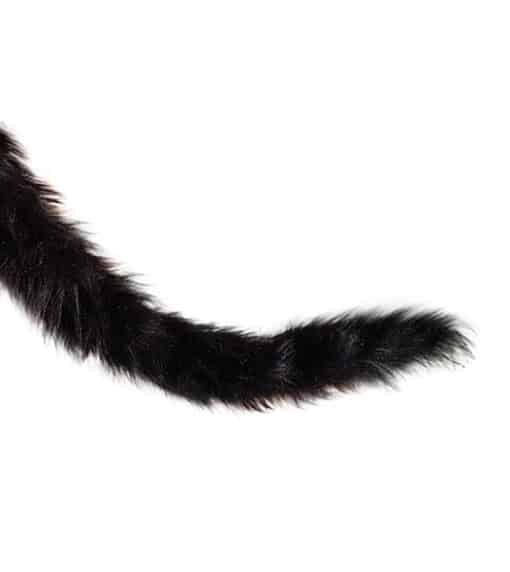
Cat tails that wag and tremble, stand up and get frisky! Lots of fun
In 2018, a cat named Cygnus Regulus Powers earned a spot in the Guinness Book of World Records for having the longest tail in the world. The silver Maine Coon, nicknamed Cy, has a tail measuring 17.58 inches long.His owners must be careful not to step on his tail or catch it in doors—and Cy has to spend a little extra time on grooming to make sure his entire tail looks its best.
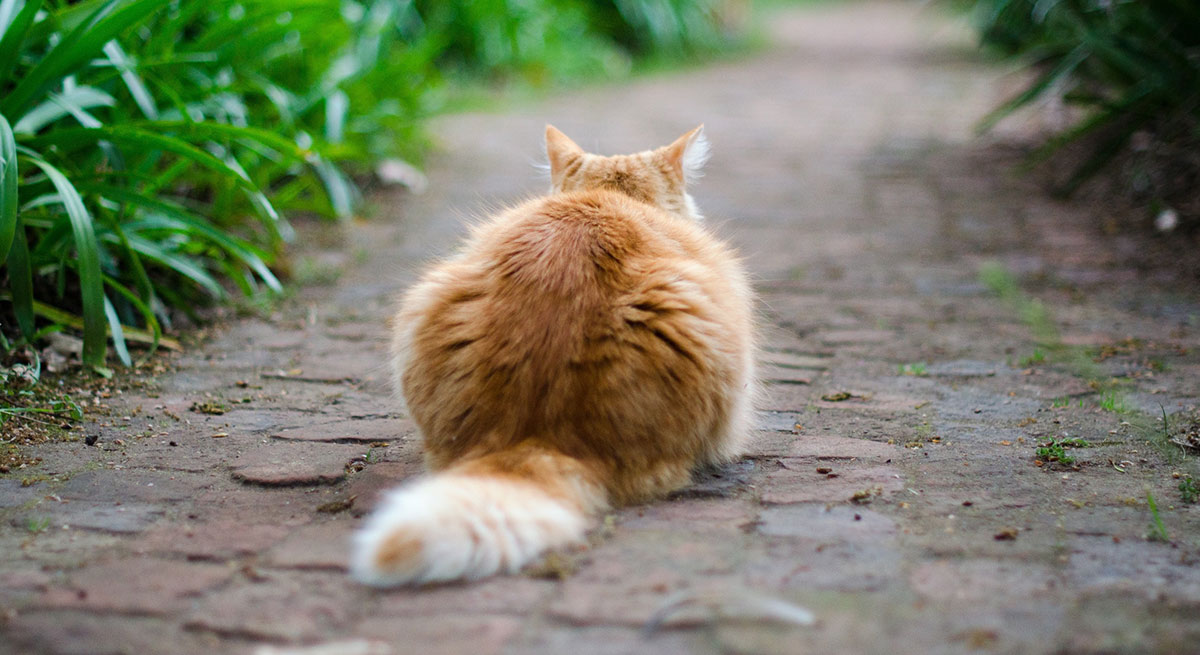
Why Do Cats Wag Their Tails A Guide To Cat Tail Language
1. Tails Help With Balance Stephen Simpson / Stone via Getty Images Cats are known for being agile. Most can scale even the narrowest ledge, and they can do this thanks to their tail. They use their tail as a counterbalance while jumping or navigating narrow places.
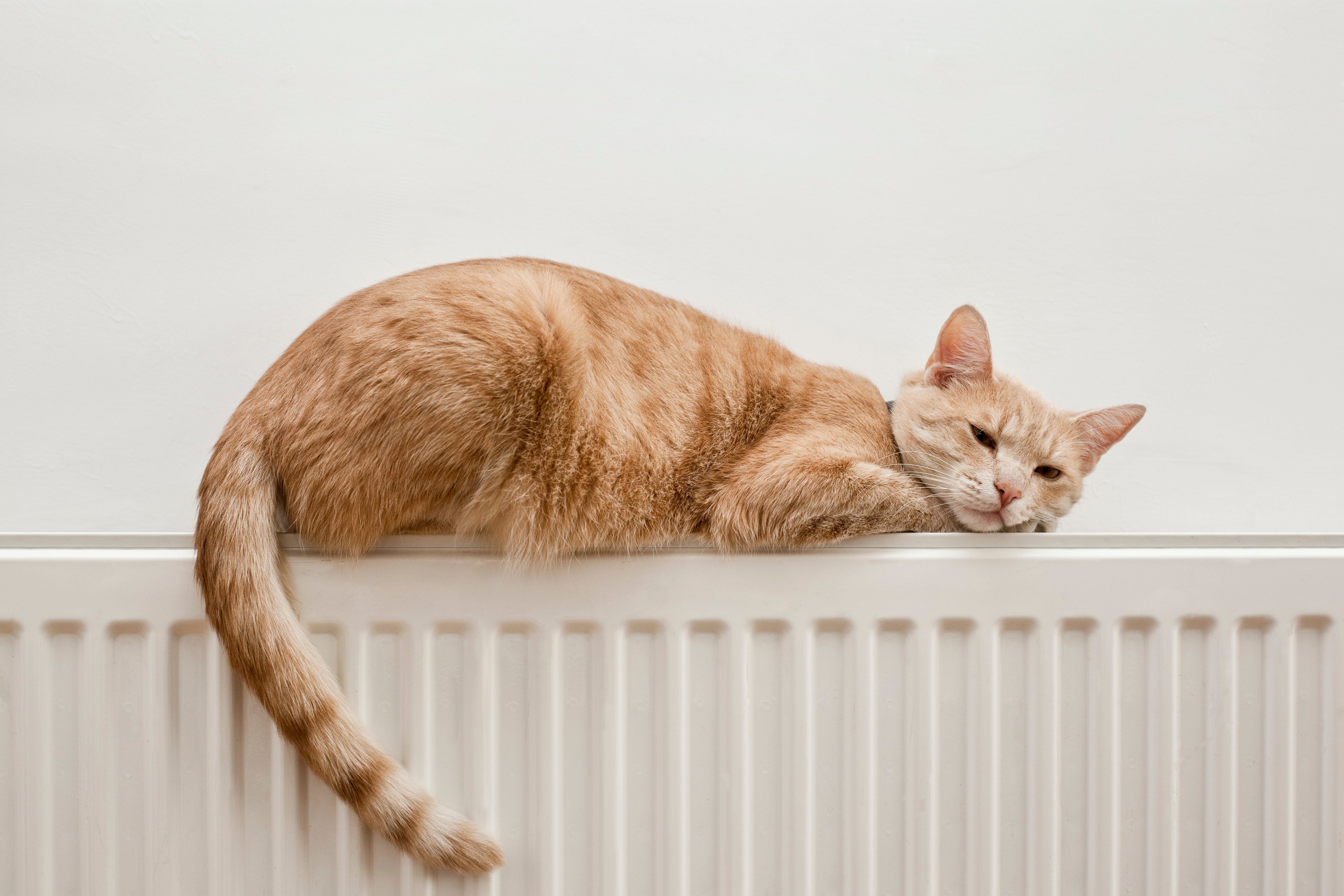
Secrets Your Cat’s Tail Is Trying to Tell You Reader's Digest Canada
The Sphynx cat is undoubtedly the most popular hairless cat breed. Their tails are long, hard, and tapering; the tails may be as hairless as the rest of the body, or display a fine down. Surprisingly, these cats can display a variety of skin patterns and colors. They may look a little unusual, but the Sphynx cat is one of the most affectionate.

Understand Your Cat's Tail Language to Read Their Mood
What is the Tail? The tail is the posterior elongated part of a cat that extends beyond the trunk or main part of the body. Where is the Tail Located? The tail is located at the end of the vertebral column. It is the hind-most part of the backbone. What is the General Structure of the Tail on a Cat?

Five Fluffy Cat Tail Pics Pet Radio Magazine
Typically, cat tails tend to have around 20 vertebrae (although this can vary in either direction based on breed) that extend outward from the spinal column towards the tip. These vertebrae are protected by muscles that control the movements of the tail, much in the same way that your legs are controlled by the thigh and calf muscles.
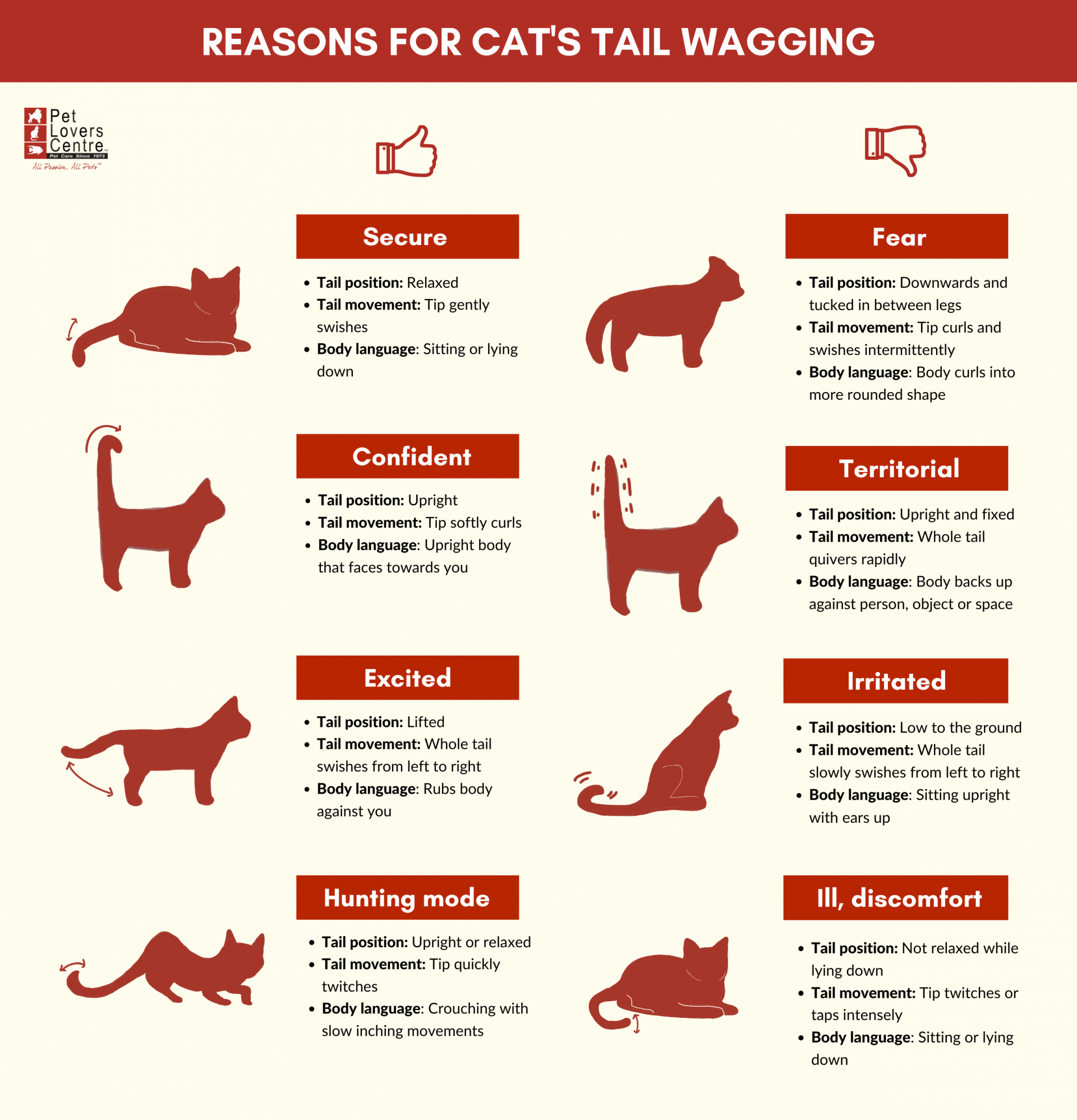
Why Do Cats Wag Their Tails 8 Reasons & How To Understand
The tail muscles are responsible for the different positions and movements of the tail. The nerves in the tail provide feedback to the cat's brain about the position and movement of the tail. Interestingly, the nerves in a cat's tail are also connected to their hind legs. This means that when a cat is walking or running, their tail is not.

Cat Breeds Known For Their Fluffy Tails Universty of Cats
Emily Harris Cats use their tails for several reasons. Firstly, it acts as a tool for balance; like a tightrope walker uses a balance pole, a cat's tail is used as a counterbalance when they navigate narrow or unstable surfaces. Secondly, it plays a critical role in communication.
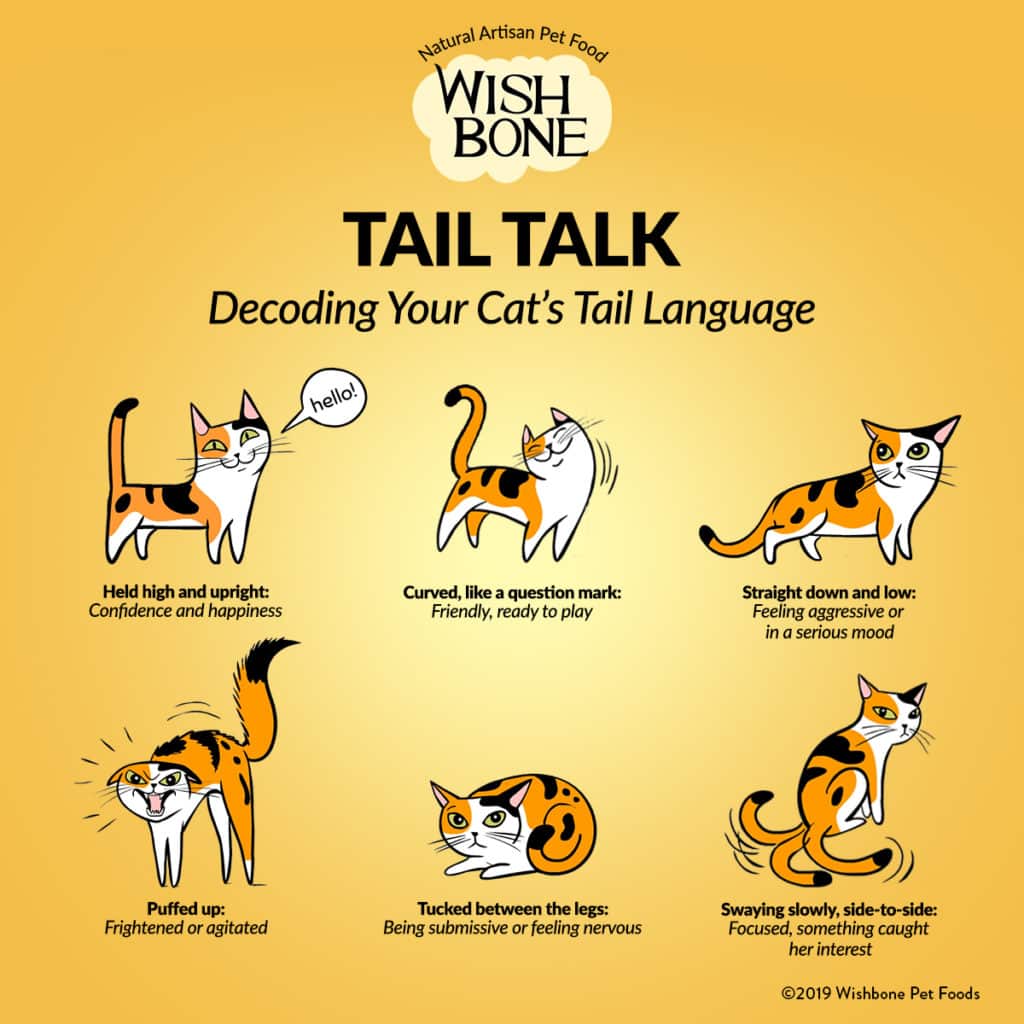
Infographic Decoding your cat's tail language Wishbone
By Oliver Jones Updated on Nov 3, 2023 Share Vet approved Reviewed & Fact-Checked By Dr. Luqman Javed DVM (Veterinarian) The information is current and up-to-date in accordance with the latest veterinarian research. Learn more » It might seem like your cat's tail is constantly in their way if it's getting caught in doors, windows, and other spaces.

Five Facts About Cat Tails That Might Surprise You
A cat's body comprises usually 230 bones, and around 10% of them are in the tail. Many cats have unusually small tails, measuring about 1 to 4 inches.
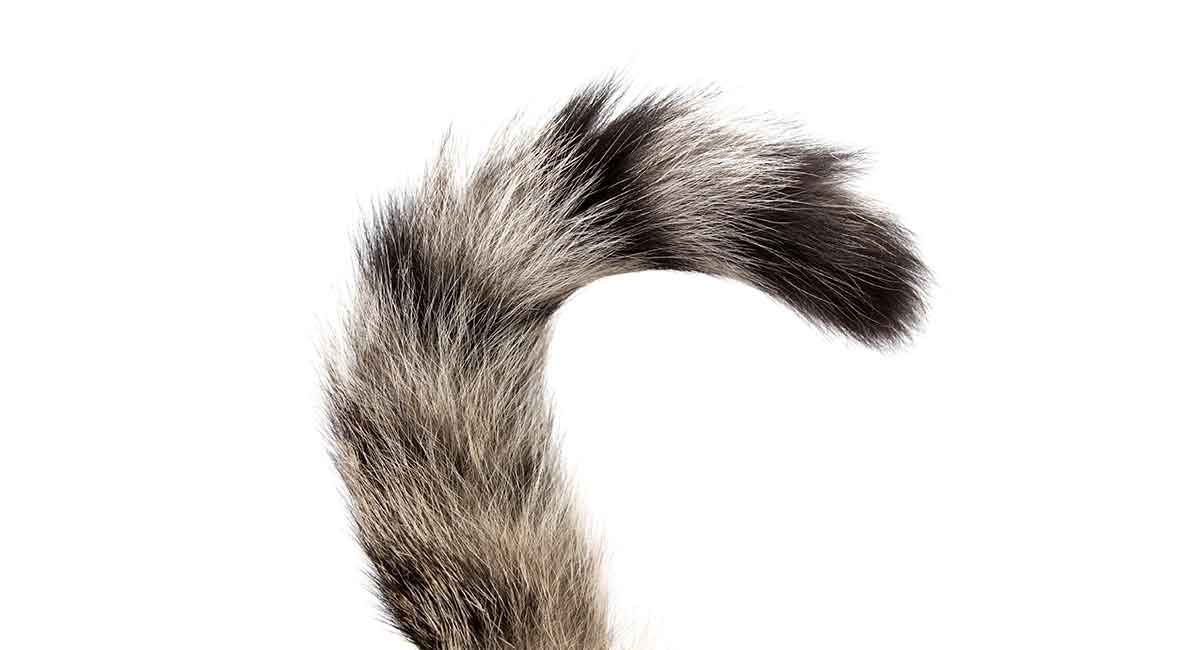
Why Do Cats Wag Their Tails A Guide To Cat Tail Language
What Do Cats Use Their Tails For? Balance Cats tails' are used in a number of ways, one of them being to help them to balance. When your cat is walking along a narrow path, such as the top of a fence, her tail acts as a counterweight to keep her movement graceful and stop her from falling.
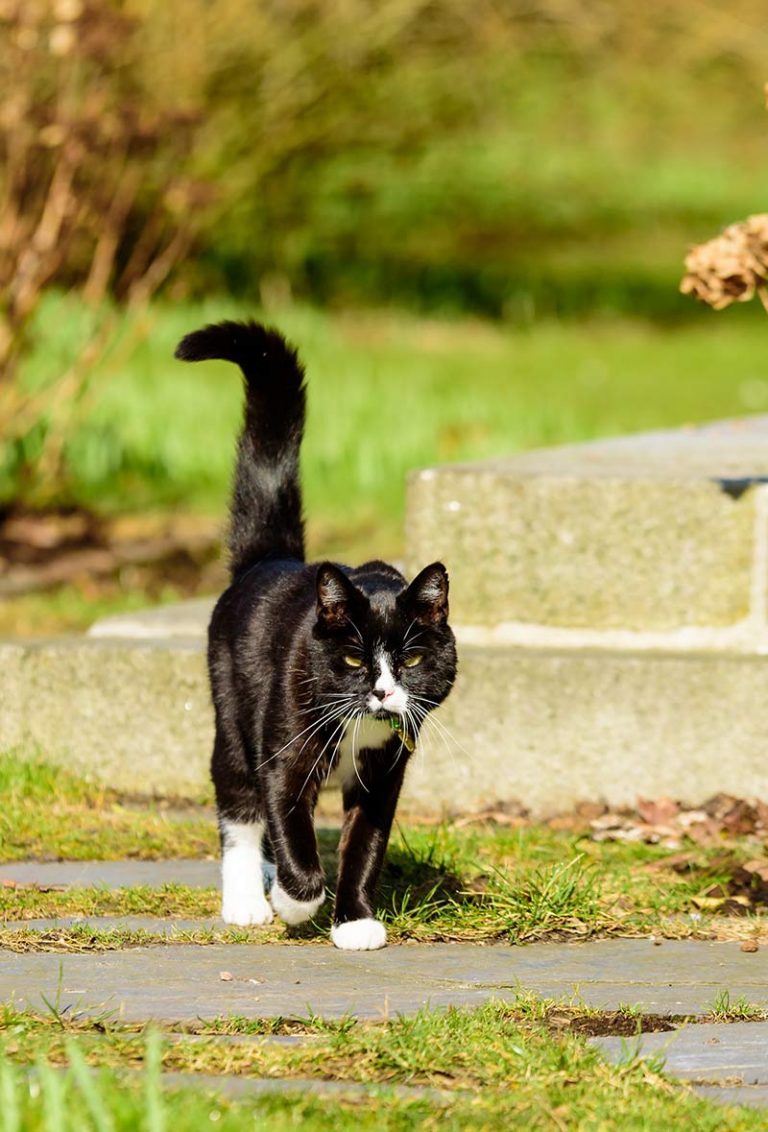
Why Do Cats Wag Their Tails A Guide To Cat Tail Language
1. Bobbed Tail Image Credit: dien, Shutterstock A cat with a bobbed tail has a nub-like tail that closely resembles a rabbit tail. Cat breeds with stubby, bobbed tails usually got that way due to a natural genetic mutation. Bobbed tails are often called bobtails.

Cat Tail Language 101 Why Cats Wag Their Tails and More PetMD
A cat's tail is a critical part of their movement, balance, and communication. So, we've learned what makes up a cat's tail structure and how they can control them, but what are cat tails used for? 1. Balance Tails are very important in helping your cat to balance.
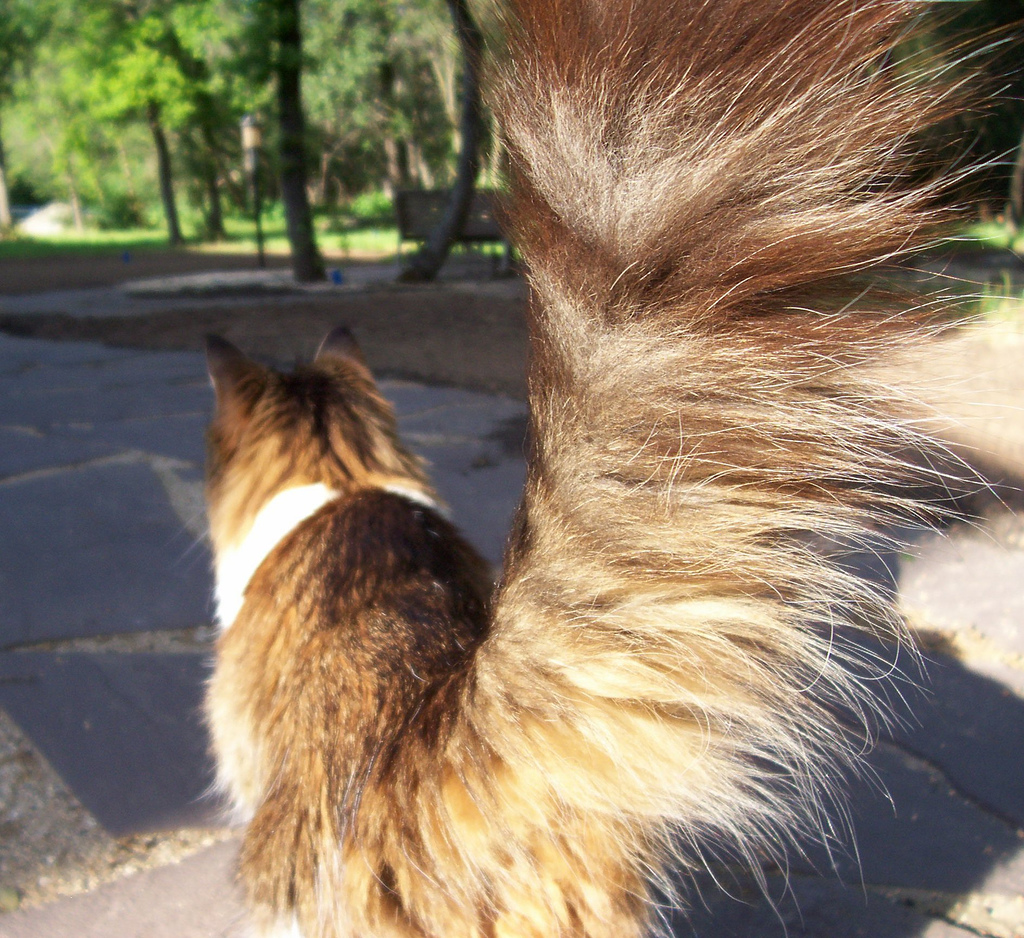
10 Super Fluffy Cat Tails Catster
Vertical tail: this is always a good sign. A straight-up tail denotes a cat that's feeling happy, confident and friendly, and if it does it in the presence of another cat it's probably inviting it over for a sniff. Watch out for a little twitch or a slight curl at the top of the tail, too; that's a sign that it's feeling especially happy.
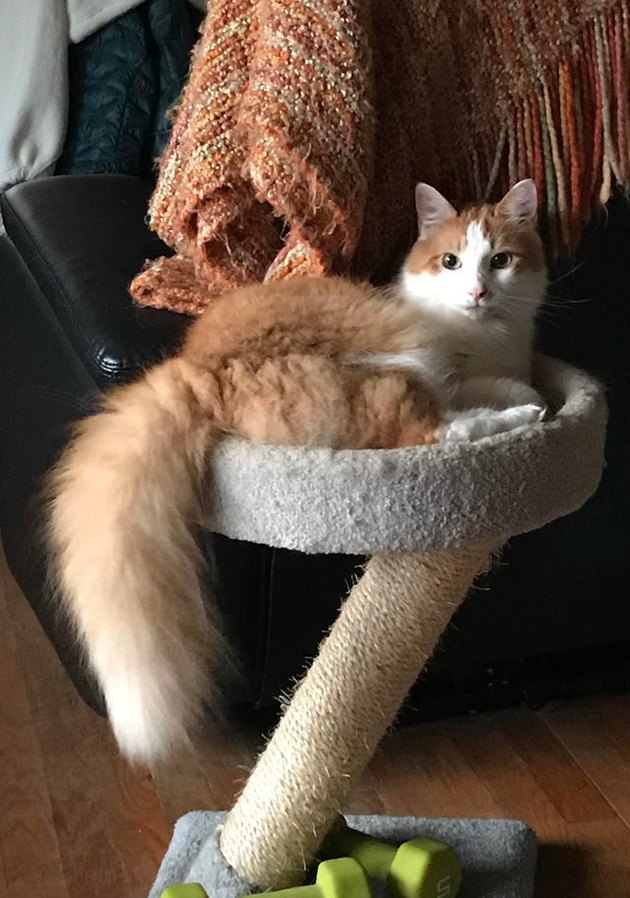
16 Cats With Gloriously Fluffy Tails Cuteness
tails.com brings you Republic of Cats. Food that's tailored to your cat's health, lifestyle and taste-buds. Get your £1 cat taster box.

Why Do Cats Have Tails? Is There Really A Purpose? + Cat Tail Facts
The tail acts as a counterbalance, helping the cat to stay upright and avoid falling. Cat tails are also used for communication. When a cat is feeling happy or content, it will hold its tail upright and twitch the tip. This is a sign of relaxation and contentment.